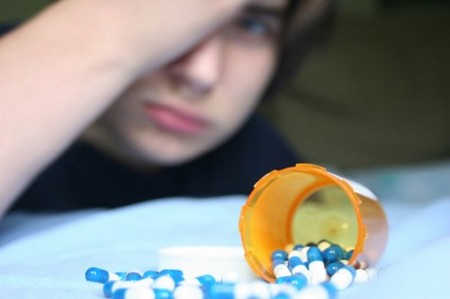When you go to your doctor with the symptoms of depression, how does the doctor decide which of the many available antidepressants they would be best prescribing? The truth is that the doctor has little idea of what will work for any particular person, as all the antidepressants are supposed to help depression. It is a matter of trial and error to see which seems to work best. In some forms of depression, such as bipolar disorder (manic depression), there is a more commonly prescribed drug that has been found to be the most successful. It is a combination of carbamazepine and lithium, which are antimanic and antidepressant. But getting the dose right is less straightforward, and monitoring the maintenance dose carefully can also be problematical. And if you are diagnosed with SAD you will probably be prescribed time in front of a light box. But for the majority of depression sufferers who do not have a particular context for their depressive symptoms, the doctor can pick any of the antidepressant drugs currently on the market.
Your doctor, for want of any other yardstick to use in prescribing antidepressants, will probably stick to the drugs with which they are most familiar, or they might make the decision based on market forces, prescribing an antidepressant that is new to the market or very popular, one that they have recently read about or that the drug companies have just delivered to the surgery. Or they might make the opposite decision if the practice cannot afford the more up-to-date drugs, and prescribe an older antidepressant simply because it is cheaper. Of course, this approach to finding the right antidepressant can be a hit or miss business. Sometimes the first drug works; sometimes several different drugs are tried before one begins to help. And there are some people for whom no antidepressant seems to help.

However, there is no doubt that in many cases antidepressants do work and the symptoms of depression are eased. We have been told there is a real breakthrough in antidepressant medication too, with the SSRI drugs such as Prozac and its newer cousins providing a highly effective cure for depressive illness. But the cost to the patient is often high. Every major antidepressant now available has a list of unpleasant side effects which range from mild to severe. This may sound alarming, but not everyone experiences unpleasant side effects while taking antidepressants, and some of you will be prepared to tolerate them for the time you are taking your medication. However, the fact that they exist is a real problem overall in depression treatment for a number of reasons:
- If you are severely depressed and taking medication that is working for your symptoms, but the side effects are intolerable, you will have to change your medication to one that might be less successful. Or you might be tempted simply to stop taking your medication, or not take it properly, because you dislike the side effects.
- If you are depressed and you know the only treatment is antidepressants with potentially unpleasant side effects, you may be frightened to seek help.
- Your doctor may be unwilling to explain possible side effects to you, in case you refuse a treatment that might be helpful, and then you (or those close to you) might not realise that your unpleasant reactions are the result of the drug, and not know to seek the appropriate help.
- It is bad enough being depressed without worrying about how the drugs you are taking might make you behave, as in some of the more disturbing side effects linked with SSRIs.
- Doctors on the NHS, often through no choice of their own, might prescribe the older generations of SSRIs such as Prozac, simply because the cost of these drugs has now fallen. The newer generations are said to have fewer side effects, but are more expensive.
Most doctors, however, are trying to relieve you of your depressive illness in the best way possible. But they are inevitably caught up in the problem that no antidepressant drugs are entirely predictable or side-effect-free.
Psychiatrists are more knowledgeable about the particular effects of certain antidepressants than GPs, and will therefore prescribe more specifically, but a person visiting a GP in a depressed state does not always have the inclination to wait to be referred to a psychiatrist – particularly on the NHS where waiting times can be long – and so will take the first drug the doctor offers.